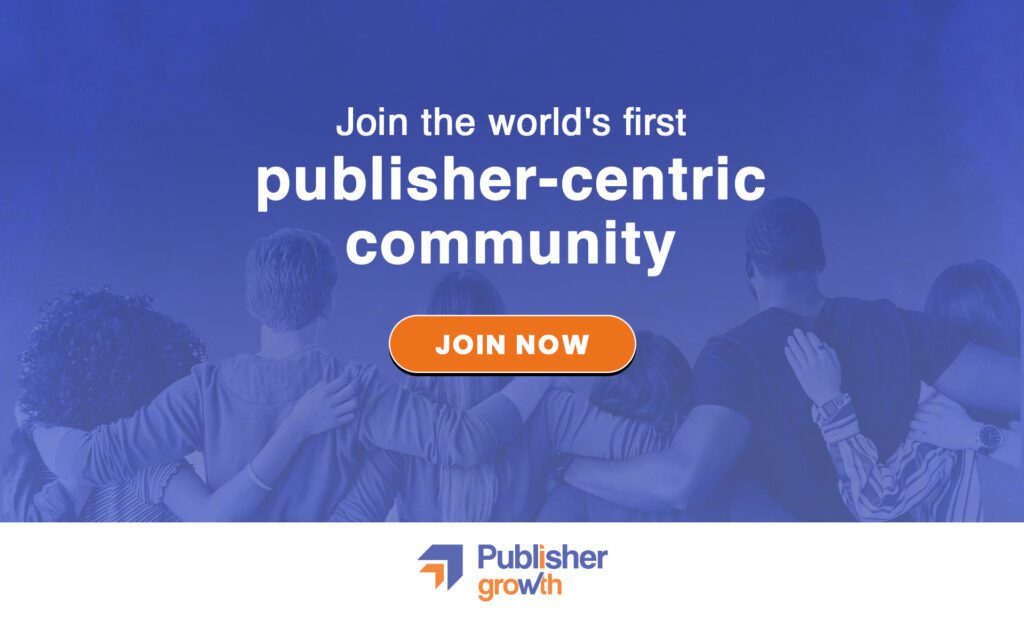Last updated on March 17th, 2022 at 12:30 pm
PMPs ( Private Marketplaces) are invite-only marketplaces where publishers set aside their premium ad inventory packages and sell them to specific buyers or advertisers through a private auction mechanism. Increased ad fraud cases, complaints of hidden vendor charges, mishaps in targeting the correct audience & inability to connect a handful of relevant buyers with a publisher lead to more engagement in PMPs. After the initial negotiation and ad positioning, transactions are done through exclusive Deal IDs. Unlike open auctions, PMP deals offer media buyers exclusive access to inventory before it becomes available in the open marketplace. PMP benefits advertisers and agencies by procuring premium inventory through relationships with known publishers, along with benefits such as fee transparency and enhanced performance. Major ad exchanges that allow publishers to set up private marketplaces are:
Publishergrowth: The Revenue Acceleration Platform for Publishers
Blognife is elated to announce the launch of Publisher Growth- a community of publishers that helps you actively accelerate your revenue. This platform assists publishers in growing their traffic and revenue. As publishers, you can share and read reviews of ad networks and hosting companies. You can connect with other publishers to build links for growth and monetization hacks and more. This platform will help you stay up to date with the advertising and publisher ecosystem.

Features:
- Doubleclick AdX
- OpenX
- PubMatic
- Index Exchange
- TripleLift
- Centro
- SpotXchange
- Rubicon Project
PMP & PG Deals
The advent of Programmatic advertising has revolutionized the digital world. It is mainly categorized as:
- Open Auction – It is an open marketplace like header bidding where all the ad exchanges have equal access to all the impressions and no one gets priority based on any criteria.
- Private Auction – Popularly called private marketplace which runs on invitation only basis for specific buyers and premium inventory is offered to them at a mutually negotiated price. These are for high priority white listed buyers.
- Preferred Deals – These are more specific deals where invited buyers are offered an inventory of their choice at a fixed price. Here the publishers control the per impression price which returns higher yield per impression than the market value.
- Programmatic Direct – These are a direct deal between a buyer and a seller for a specific inventory at a fixed price. As the data collected are researched beforehand, these ads are highly targeted.
PMP deals are attractive because they bridge the best aspects of traditional direct sales and programmatic. Direct sales allow direct relationships between buyer and publisher with custom deals, premium inventory collection. Whereas programmatic benefits in an automated workflow add immense efficiency to the sales process, the ability to target specific audiences in real-time and evaluate, target and customize ad creative for each impression better. Google allows publishers to auto-test and auto-optimize private auctions against the open auction but this is not the case for PMPs.
Within the Private MarketPlace where only selected buyers are allowed on the basis of invitation, they may request for a few specified inventories at a pre-negotiated fixed price. The access to this special request is known as Preferred Deal. These allow individual buyers to negotiate fixed-price at first sight kinds of deals with sellers. The CPM is mostly higher than regular programmatic and equal to direct sales because advertisers are seeking impressions based on the specific request on the basis of the data collected previously. Preferred deals are based on mutual agreements between publishers and advertisers where advertisers specify ad sizes, placements and audiences. Both sides then negotiate the price for the impressions. These deals are executed programmatically where advertisers have to send an ad tag to the publishers which would link to the allocated ad placement. The entire execution runs through DSPs and SSPs through a unique Deal ID.
Tips on monetizing through PMPs
- Strategizing Deals: Initially one has to determine the appropriate PMP strategy for the campaign. If one has to focus heavily on agency relationships along with a robust sales team, PMP prioritization in both auction and ad stack should be done to drive performance for a long-term, strategic partnership. For a faster yield, PMPs should allow competing only based on price. Despite the strategy opted for, prioritization of the ad server should match that of the PMP auction. If PMP deals are to compete at a higher priority within the exchange auction but not at a higher price priority in the ad server, the impression is given the sole potential to win the auction at less than its true market value. This ultimately undermines yield when an open auction bid from that same exchange partner may have won in both the auction and the ad stack at a higher CPM.
- Experiment: The controlled environment of the PMPs are perfect for publishers to experiment with programmatic videos. Mobile and native video ads with high-quality creatives are other formats that are popularly sold through private deals
- Selecting the right partner: Determining a partner is an important stage because header bidding has enabled equal access for an inventory to all partners. Partner with the tools should be selected in preferred deals to make the setup and prioritization of those deals easier for both the buyer & the seller. PMP partners should be able to pass all Key-Values into the server without the wrapper mediating the bids. This allows for the trafficking of deals over the publishers’ Open Auction line items. Regardless of prioritized deals, publishers should look for partners who can help facilitate buyer discovery of the inventory through proactive market insights and market-making. Partners should also be able to bring sale from several other market places. PMP partners should have the tools and service to instantly identify issues with PMP deals and resolve them quickly to ensure seamless monetization.
- Optimizing the page: After choosing the primary partner, it is to be ensured that their integration is optimized wholly. With reference to Header Bidding, it is to be confirmed that bids and key values are making it into the ad server. There has to be the verification of minimal discrepancy between the ad server numbers and partner’s paid impressions. While testing or evaluating S2S integrations, cookie match rates are to be monitored minutely. PMP partners client-side is to be left to ensure that buyers are recognizing their audiences and these deals have the ability to be prioritized in the ad stack. Ensuring a clean integration for the PMP partners will lead to maximizing scale and response against PMP deals.
- Prioritize deals: Finally, it is about choosing prioritized or guaranteed deals, unique opportunities for prioritization that will allow charging for the premium inventory. With equal access to all impressions, prioritization and preset budgets are driving factors for buyers in the PMP. Nowadays, Header bidding allows publishers to offer a new value proposition to PMP buyers which is the ability to prioritize data-driven buys above other partners. With this new feature, there is an increase in the value of the inventory, leading to scaled, efficient campaigns for buyers and more revenue for publishers.
Round Up
PMPs are a very recent addition to digital marketing but buyers, sellers & various digital marketing platforms helped these to grow quickly by adopting as a part of their media buying strategies. It is a common notion that a private marketplace is usually for premium inventory and the open auction is for the cheaper, remnant ads. But a private marketplace is more about the way of selling the publisher’s inventory than the quality of the inventory. Along with traditional PMPs, there are multi-publisher PMPs available for brands, buyers, and agencies to save buyers’ time by creating a single deal ID that allows instant scaling and customization. If you’re looking for a service that can help you increase your ad revenue by bringing in more direct deals and integrating additional demand, look no further- OKO is the one-stop website revenue management company you need to consider for this. Go ahead and signup with the link below to get priority on-boarding.
Our Recommended Tools for Publishers:
- Best AdSense Alternative- Setupad, Ezoic
- Push Notification Network- iZooto, Unative,
- Best Contextual Ad Network- Media.net (Extra 10% for 3 months)
- Native Ad Network- Mgid
- Popup Ad Network- Exoclick, Propeller Ads
- Best Web Hosting- Bluehost, Hostgator, Stablehost, WPEngine
- Blogging Tools- OptinMonster, Astra, Teachable,

I and my team research various ad networks and can help you increase your overall ad revenue; so you could rake in more greenbacks with the best monetization platforms. Tap into the power of the online publishing business with me. I am just a mail away, so reach out to me if you want to scale up your website revenue. mail: [email protected]


